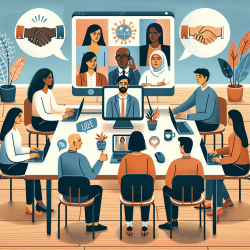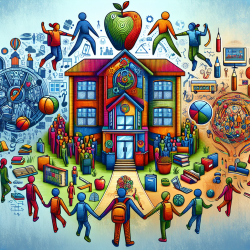Understanding Cannabis Use Through Social Networks
Recent research titled “I feel like marijuana is the only drug that wouldn’t kill me”: perceptions of cannabis use in previously incarcerated Black men who have sex with other men provides valuable insights into how social networks influence cannabis perceptions and usage. As practitioners, understanding these dynamics can enhance our approach to therapy and intervention strategies.
The Role of Social Networks
The study highlights that social networks play a crucial role in shaping perceptions and usage patterns of cannabis. Participants in the study often learned about cannabis from peers and family members, who also influenced their decisions regarding other substances. This underscores the potential of leveraging social networks to encourage healthier behaviors.
- Peer Influence: Peers often serve as the initial source of information and access to cannabis, impacting both the initiation and continuation of use.
- Family Dynamics: Family members, particularly older ones, can serve as negative examples, influencing perceptions of harder drugs versus cannabis.
Need Fulfillment and Risk Perception
Participants frequently used cannabis to fulfill basic needs such as hunger and sleep, and to cope with emotional stressors like depression. This therapeutic framing of cannabis use, as opposed to viewing it as a "hard" drug, suggests that practitioners should consider these motivations when designing interventions.
Understanding the perceived risks associated with cannabis versus other substances is also vital. Many participants viewed cannabis as a safer alternative, highlighting the importance of addressing these perceptions in therapy.
Implications for Practitioners
Practitioners can utilize these findings to improve intervention strategies by:
- Engaging Social Networks: Leverage the influence of social networks to promote healthier behaviors and support recovery efforts.
- Addressing Motivations: Understand and address the underlying motivations for cannabis use, such as coping with stress or fulfilling basic needs.
- Risk Education: Provide education on the risks associated with cannabis and other substances to inform better decision-making.
Encouraging Further Research
While this study provides valuable insights, further research is needed to explore the nuances of cannabis use and its social influences. Practitioners are encouraged to stay informed about ongoing research to continually refine their approaches.
To read the original research paper, please follow this link: “I feel like marijuana is the only drug that wouldn’t kill me”: perceptions of cannabis use in previously incarcerated Black men who have sex with other men.










